- WMU students win the eighth "Winner's Cup" in the national “Challenge Cup” competition
- Author:Communist Youth League of China, WMU Committee Date:November 17, 2023

(Deputy Secretary of the University Party Committee, Cheng Jinguo, with the participating team)

(Vice President Jin Shengwei with the participating team)
On October 30, the 18th "Challenge Cup" National Undergraduate Curricular Academic Science and Technology Works Competition, co-hosted by the Communist Youth League Central Committee, China Association for Science and Technology, Ministry of Education, Chinese Academy of Social Sciences, All-China Students' Federation, and the People's Government of Guizhou Province, concluded at Guizhou University.
In this competition, Wenzhou Medical University won its eighth "Winner’s Cup", with a total of 19 projects receiving national-level awards, marking the most awards achieved in its history.
Wenzhou Medical University won one grand prize, one first prize, two second prizes, and two third prizes of the main track; two first prizes and one second prize of the “Open Competition” track; one "Galactic-level" grand prize, two "Stellar-level" first prizes, one "Planetary-level" second prize, and six "Satellite-level" third prizes of the “Black Technology” special track; and three third prizes in the “Red” special track.
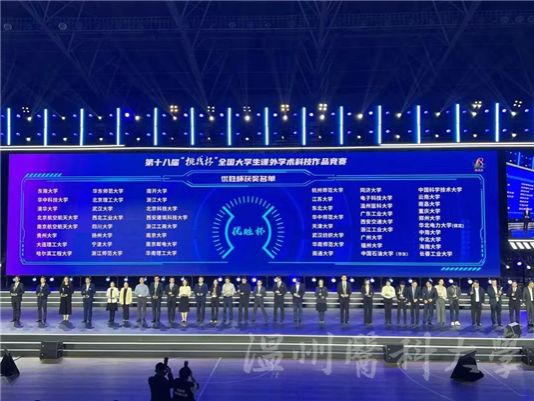
(Representative of WMU is receiving the "Winner’s Cup" award: the tenth from the left)
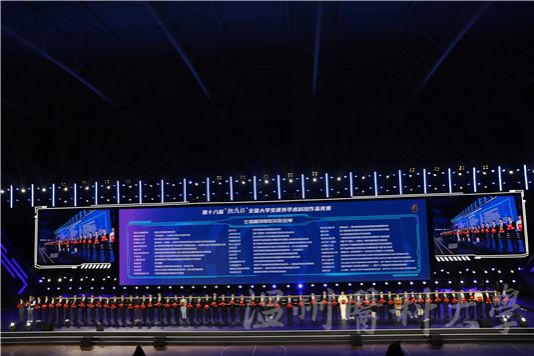
(Representative of WMU is receiving the Grand Prize: the thirteenth from the left)
Team Introduction
Grand prize of the main track: "Life 'Trace'—Needle-Free Intelligent Ultrasound-Assisted Umbilical Cord Blood Collection Device”

Schools: Postgraduate Training Base, School of Ophthalmology & Optometry (School of Biomedical Engineering), School of Psychiatry
Supervisors: Chen Xiaozhong, Zheng Chenguo, Zhang Xinyi
Team Members: Zhao Danrui, Liu Geyu, Xu Jingwen, Zhu Yirui, Li Nanjin, Tang Yunzhi, Zhang Peipei, Tong Wangyong
Project Introduction:
The "Life Traces" team is a talent aggregation of cross-disciplinary expertise, encompassing clinical medicine, biomedical engineering, and multiple other fields. Focusing on three major issues in umbilical cord blood collection: high contamination rate, short collection time window, and limited blood volume, the team has come up with three innovative techniques and developed a needle-free intelligent ultrasound-assisted umbilical cord blood collection device that collects a greater quantity of higher-quality cord blood using more advanced collection methods, thereby enhancing the entry rate into public cord blood banks and maximizing the clinical potential of cord blood hematopoietic stem cells. Looking to the future, the team bears the mission of medical students, takes China’s realities into account, and contributes to the construction of the national public cord blood bank. Their proposal to expand the hematopoietic stem cell resource bank by boosting technical innovation in cord blood collection methods received a response and high recognition from Deputy Director Huang Erdan at the China National Health Development Research Center. The "Life Trace" team is dedicated to enhancing the health and well-being of the people through China’s technology and creating the miracle of life through cord blood collection.
Grand prize of the "Black Technology" special track: "Superpowered Stem Cells—Treatment for Spinal Cord Injury with Neural Stem Cells Modified by Oxygen-Regulated bFGF Gene ”
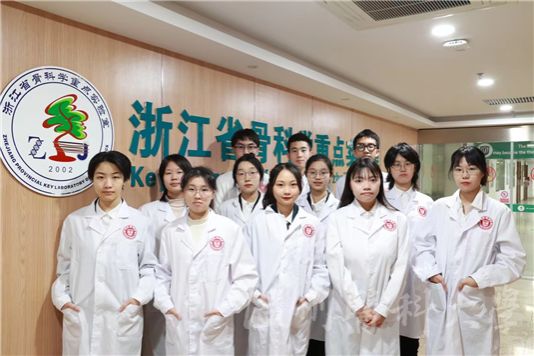
School: School of the 2nd Clinical Medical Sciences
Supervisor: Zhu Sipin
Team Members: Wang Yunyang, Hu Rui, Chen Han, Cao Xin, Hu Jieyu, Lin Yuxuan, Ying Yibo, Zhang Yifan, Pan Ziyu, Fu Yining
Project Introduction:
Spinal cord injury has been proven to be extremely difficult to repair, and scientists hope that stem cell research may eventually help restore neural circulation for people with spinal cord injuries. Transplanting dental pulp stem cells to rebuild the structure and function of nerve tissue is currently a hot topic in the field of neural injury repair. However, the survival rate and differentiation level of solely transplanted stem cells are not ideal, and using growth factors to promote differentiation may pose uncontrollable risks. bFGF is one of the essential neurotrophic factors for stem cell differentiation, possessing robust differentiation and proliferation capabilities. The "Superpowered Stem Cells" team found that bFGF can promote spinal cord injury recovery. The team has successfully constructed a low oxygen-regulated bFGF gene-modified stem cell system through gene recombination, which provides new therapeutic strategies and a profound theoretical basis for spinal cord injury research.
Wenzhou Medical University attached great importance to the organization and application of the "Challenge Cup" series of competitions. Since its commencement in December 2022, the competitions at the school level, university level, provincial level, and national level have received care and support from the university leaders and active participation of the faculty and students. During the national finals, Cheng Jinguo, deputy secretary of WMU Party Committee, and Jin Shengwei, vice president of the university, cared for and guided the pre-competition preparation work, and visited the participating teachers and students to express encouragement. Relevant administrative departments collaborated closely and various schools actively organized the event, offering comprehensive and multi-level support to the project teams. The outstanding achievements obtained by the participating teams in this "Challenge Cup" competition fully demonstrate the results of the university's youth scientific and technological innovation work, showcasing the spirit of continuous self-challenge and pursuit of excellence of our students.
Guided by the principles of "advocating science, seeking truth, studying diligently, striving for innovation, and embracing challenges", the "Challenge Cup" competition, known as the scientific and technological innovation “Olympic Games” for Chinese college students, serves as a practice platform for all young students, which cultivates the scientific spirit, collaborative abilities, and collective consciousness of university students. This year's "Challenge Cup" competition adopts a "1+1+2" event framework, offering more opportunities for students from different levels of schools and majors to excel. The competition consisted of the main track, the “Open Competition” special track, the “Red” special track, and the "Black Technology" exhibition, creating a multi-layered structure encompassing distinctive positioning and emphasis on humanities and sciences, attracting over 2.5 million students from more than 2,000 universities nationwide with more than 400,000 entries.
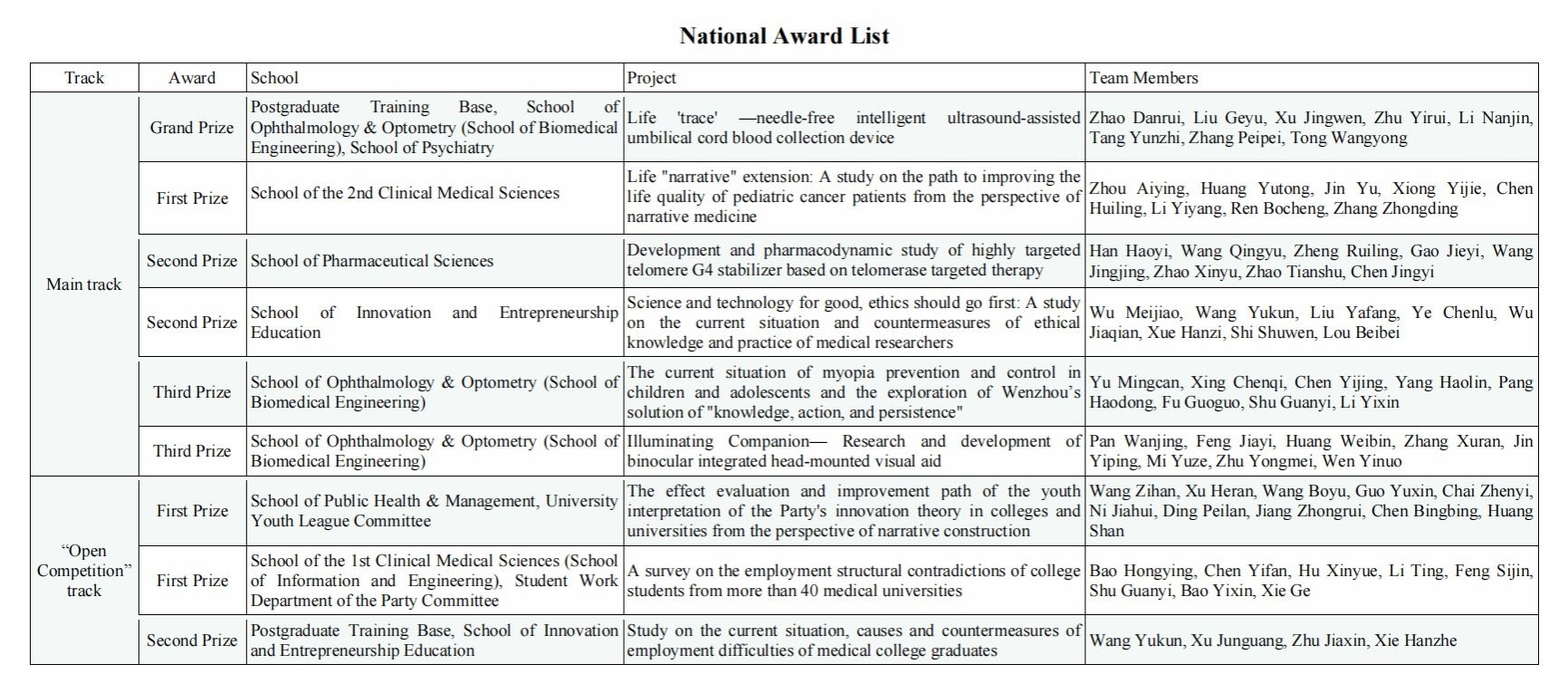
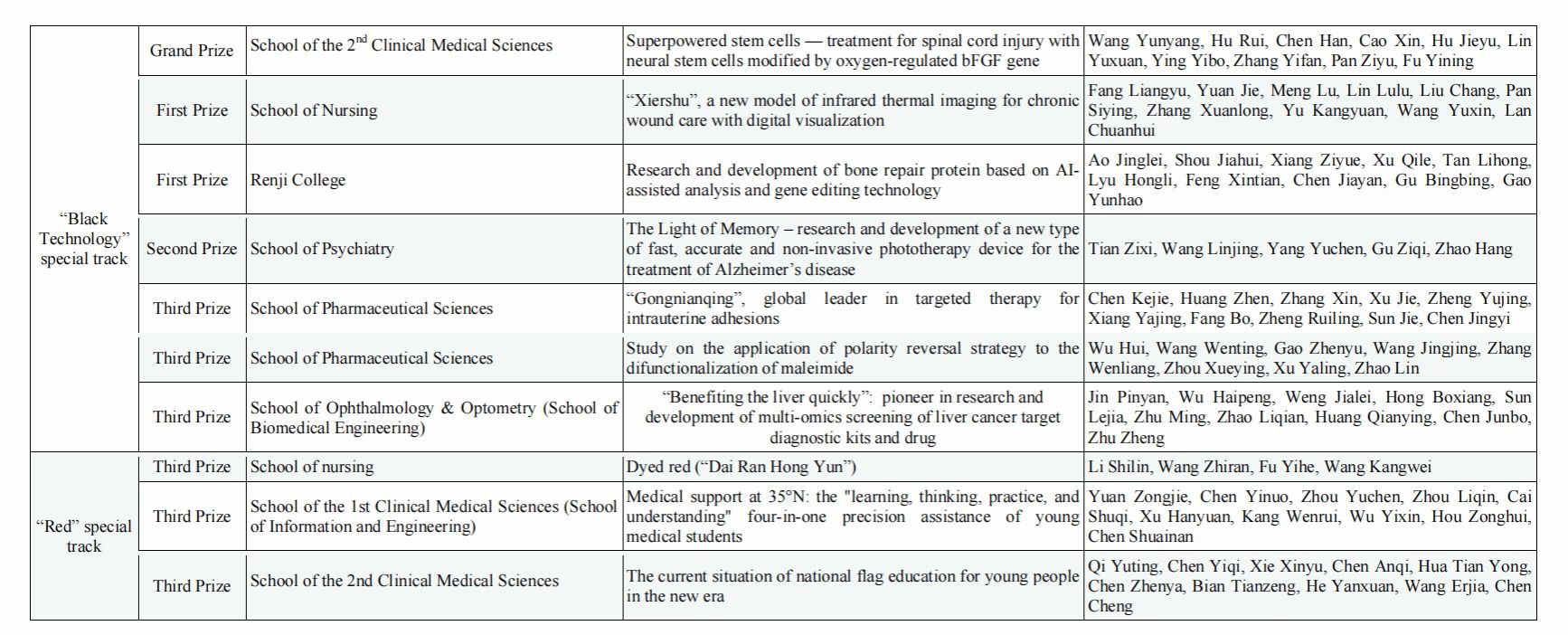
Text translated by Hong Yanggang and reviewed by Sun You.
